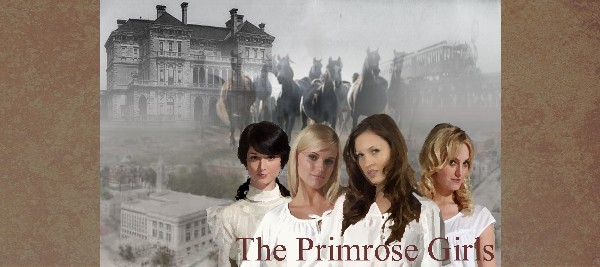July 25, 1896
Edith Bowen
Edith Bowen
“Do you feel guilty?” Charles asked.
“No, should I?” I replied.
We were sitting in his living room. I was enjoying red wine, while he was sipping his customary single malt. Charles is the only man I know who can savor a single glass of whiskey for more than hour. At the current rate I will have downed half the bottle of wine and he will still be on the same glass. It makes me wonder if he truly likes whiskey or just thinks he is supposed to like it.
“Guilt is a very personal thing. It is normal to feel a sense of guilt over a great many things, but especially when we make choices that are selfish in nature.” Charles said.
He was studying me. I did not even have to look at him to know it. I could feel his eyes wandering over me and while not long ago I would have mistaken it for a sexual appetite, I know better now. He was looking for truth.
“Like the choice to fight to live?” I asked.
“Perhaps. Do you think you made that choice?”
“Yes.”
Charles smiled and studied his whiskey for a moment before replying.
“Do you think Ms. Maple made the choice not to fight for her life?” He asked.
It was a cruel question. The look on his face told me he knew it was. I wondered in the face of it, why he would ask.
“I do not know.” I whispered.
“Allow me to put it a different way. Do you think she chose to give up?”
“No.” I replied.
“You sound certain.”
“I am.”
“But you are not certain if she would choose to live. How can you be certain she did not choose to die?”
“You are saying there is no difference?”
“I am saying you can never know the internal choices of another person. What you believe about them is all you have.”
“What about truth?” I asked.
“What about it?”
“Can the truth be flexible based on what we believe?”
“Very much so. Not all truths though, some are more inflexible than others.”
“Do you think I should feel guilty because I lived and she died?”
“I think you should feel relieved.”
“You did not answer the question.”
“Of course, not. It is not my place to tell you when you should feel guilty.”
“I did not ask you to tell me when I should.”
“Didn’t you?”
“I asked what you believed.”
“Why would it matter to you?”
“I would not want you to believe me to be insensitive.”
“I do not believe you are.”
“Then why have you asked if I feel guilty?”
“Because I thought you might.”
“Feeling guilty because I lived, seems wrong.”
“I agree, but that was not what I asked. I merely asked if you felt guilty. I did not imply what you might feel guilty about. It was your own predispositions which led you to assume I was speaking of living.”
“I feel guilty about not feeling guilty?” I asked.
Charles laughed. After a moment I did as well. The entire conversation had slipped into the absurd.
“Let me simplify. I am aware of the falling out you had with Ms. Maple over the politics of this school.” He said.
“And you think I might feel guilty because I did not agree with her?”
“I think you might feel guilty because you were warned that your politics in these regards were dangerous and you ignored those warning.”
“I do not.”
Charles appeared surprised by my response, but I stand by it. I am not the guilty party here.
“You are more confidant than you seem then.”
“What do you mean?”
“I have seen you to have doubts. I have seen you to question the simplest of things, it is the nature of your very political alignment. It seems a contradiction that you would not question yourself.”
“If I question what I believe in, then what am I left with?”
“The truth.”
“Which is?”
“Only you can know that.”






1 comment:
Ashley, this is very good.
Warm hugs,
Paul.
Post a Comment